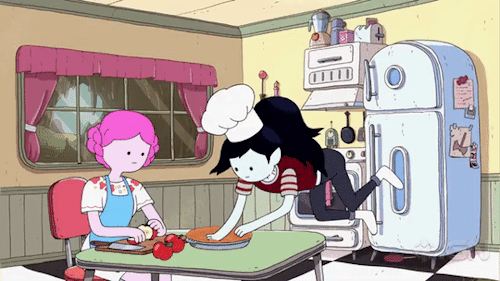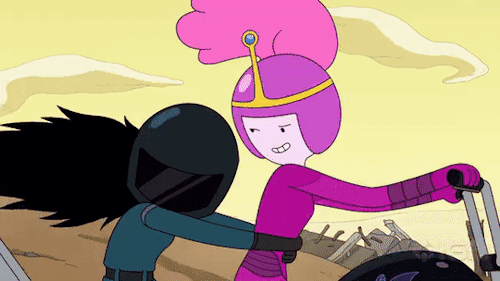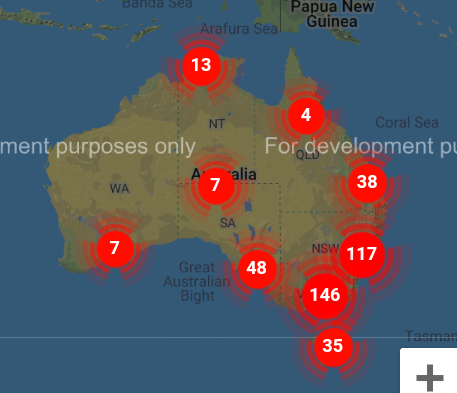No You Can Fucking Not

No you can fucking not
More Posts from Calamansis and Others




Through the eyes of a raper. saw this on Twitter. So useful






Chimamanda Ngozi Adichie: “Black Lives Matter is doing something really important.”
Nigerian novelist and short story writer Chimamanda Ngozi Adichie is sharing her thoughts on the striking difference between how Black people are seen in Nigeria and America and the importance of the Black Lives Matter movement on Channel 4 News.
Full video
#BlackLivesMatter
As someone that has grown up surrounded by beaches and done surf life saving, I know how the sea works. Lots of people dont. Every summer multiple tourists die here because they don’t respect the sea, if you’re going to the coast, here’s a thing I saw on Facebook.










I want to live by myself when I move out of my parent's place but I'm really afraid of money problems? I'm afraid that the only place I can afford will be in the ghetto and it'll all be torn apart and I'll only be allowed to eat one granola bar a week. I'm really stressing out about this. I don't know anything about after school life. I don't know anything about paying bills or how to buy an apartment and it's really scaring me. is there anything you know that can help me?
HI darling,
I’ve actually got a super wonderful masterpost for you to check out:
Home
what the hell is a mortgage?
first apartment essentials checklist
how to care for cacti and succulents
the care and keeping of plants
Getting an apartment
Money
earn rewards by taking polls
how to coupon
what to do when you can’t pay your bills
see if you’re paying too much for your cell phone bill
how to save money
How to Balance a Check Book
How to do Your Own Taxes
Health
how to take care of yourself when you’re sick
things to bring to a doctor’s appointment
how to get free therapy
what to expect from your first gynecologist appointment
how to make a doctor’s appointment
how to pick a health insurance plan
how to avoid a hangover
a list of stress relievers
how to remove a splinter
Emergency
what to do if you get pulled over by a cop
a list of hotlines in a crisis
things to keep in your car in case of an emergency
how to do the heimlich maneuver
Job
time management
create a resume
find the right career
how to pick a major
how to avoid a hangover
how to interview for a job
how to stop procrastinating
How to write cover letters
Travel
ULTIMATE PACKING LIST
Traveling for Cheap
Travel Accessories
The Best Way to Pack a Suitcase
How To Read A Map
How to Apply For A Passport
How to Make A Travel Budget
Better You
read the news
leave your childhood traumas behind
how to quit smoking
how to knit
how to stop biting your nails
how to stop procrastinating
how to stop skipping breakfast
how to stop micromanaging
how to stop avoiding asking for help
how to stop swearing constantly
how to stop being a pushover
learn another language
how to improve your self-esteem
how to sew
learn how to embroider
how to love yourself
100 tips for life
Apartments/Houses/Moving
Moving Out and Getting an Apartment, Part 1: Are You Sure? (The Responsible One)
Moving Out and Getting an Apartment, Part 2: Finding the Damn Apartment (The Responsible One)
Moving Out and Getting an Apartment, Part 3: Questions to Ask about the Damn Apartment (The Responsible One)
Moving Out and Getting an Apartment, Part 4: Packing and Moving All of Your Shit (The Responsible One)
How to Protect Your Home Against Break-Ins (The Responsible One)
Education
How to Find a Fucking College (The Sudden Adult)
How to Find Some Fucking Money for College (The Sudden Adult)
What to Do When You Can’t Afford Your #1 Post-Secondary School (The Sudden Adult)
Stop Shitting on Community College Kids (Why Community College is Fucking Awesome) (The Responsible One)
How to Ask for a Recommendation Letter (The Responsible One)
How to Choose a College Major (The Sudden Adult)
Finances
How to Write a Goddamn Check (The Responsible One)
How to Convince Credit Companies You’re Not a Worthless Bag of Shit (The Responsible One)
Debit vs Credit (The Responsible One)
What to Do if Your Wallet is Stolen/Lost (The Sudden Adult)
Budgeting 101 (The Responsible One)
Important Tax Links to Know (The Responsible One)
How to Choose a Bank Without Screwing Yourself (The Responsible One)
Job Hunting
How to Write a Resume Like a Boss (The Responsible One)
How to Write a Cover Letter Someone Will Actually Read (The Responsible One)
How to Handle a Phone Interview without Fucking Up (The Responsible One)
10 Sites to Start Your Job Search (The Responsible One)
Life Skills
Staying in Touch with Friends/Family (The Sudden Adult)
Bar Etiquette (The Sudden Adult)
What to Do After a Car Accident (The Sudden Adult)
Grow Up and Buy Your Own Groceries (The Responsible One)
How to Survive Plane Trips (The Sudden Adult)
How to Make a List of Goals (The Responsible One)
How to Stop Whining and Make a Damn Appointment (The Responsible One)
Miscellaneous
What to Expect from the Hell that is Jury Duty (The Responsible One)
Relationships
Marriage: What the Fuck Does It Mean and How the Hell Do I Know When I’m Ready? (Guest post - The Northwest Adult)
How Fucked Are You for Moving In with Your Significant Other: An Interview with an Actual Real-Life Couple Living Together™ (mintypineapple and catastrofries)
Travel & Vehicles
How to Winterize Your Piece of Shit Vehicle (The Responsible One)
How to Make Public Transportation Your Bitch (The Responsible One)
Other Blog Features
Apps for Asshats
Harsh Truths & Bitter Reminders
Asks I’ll Probably Need to Refer People to Later
Apartments (or Life Skills) - How Not to Live in Filth (The Sudden Adult)
Finances - Tax Basics (The Responsible One)
Important Documents - How to Get a Copy of Your Birth Certificate (The Responsible One)
Important Documents - How to Get a Replacement ID (The Responsible One)
Health - How to Deal with a Chemical Burn (The Responsible One)
Job Hunting - List of Jobs Based on Social Interaction Levels (The Sudden Adult)
Job Hunting - How to Avoid Falling into a Pit of Despair While Job Hunting (The Responsible One)
Job Hunting - Questions to Ask in an Interview (The Responsible One)
Life Skills - First-Time Flying Tips (The Sudden Adult)
Life Skills - How to Ask a Good Question (The Responsible One)
Life Skills - Reasons to Take a Foreign Language (The Responsible One)
Life Skills - Opening a Bar Tab (The Sudden Adult)
Relationships - Long Distance Relationships: How to Stay in Contact (The Responsible One)
Adult Cheat Sheet:
what to do if your pet gets lost
removing stains from your carpet
how to know if you’re eligible for food stamps
throwing a dinner party
i’m pregnant, now what?
first aid tools to keep in your house
how to keep a clean kitchen
learning how to become independent from your parents
job interview tips
opening your first bank account
what to do if you lose your wallet
tips for cheap furniture
easy ways to cut your spending
selecting the right tires for your car
taking out your first loan
picking out the right credit card
how to get out of parking tickets
how to fix a leaky faucet
get all of your news in one place
getting rid of mice & rats in your house
when to go to the e.r.
buying your first home
how to buy your first stocks
guide to brewing coffee
first apartment essentials checklist
coping with a job you hate
30 books to read before you’re 30
what’s the deal with retirement?
difference between insurances
Once you’ve looked over all those cool links, I have some general advice for you on how you can have some sort of support system going for you:
Reasons to move out of home
You may decide to leave home for many different reasons, including:
wishing to live independently
location difficulties – for example, the need to move closer to university
conflict with your parents
being asked to leave by your parents.
Issues to consider when moving out of home
It’s common to be a little unsure when you make a decision like leaving home. You may choose to move, but find that you face problems you didn’t anticipate, such as:
Unreadiness – you may find you are not quite ready to handle all the responsibilities.
Money worries – bills including rent, utilities like gas and electricity and the cost of groceries may catch you by surprise, especially if you are used to your parents providing for everything. Debt may become an issue.
Flatmate problems – issues such as paying bills on time, sharing housework equally, friends who never pay board, but stay anyway, and lifestyle incompatibilities (such as a non-drug-user flatting with a drug user) may result in hostilities and arguments.
Your parents may be worried
Think about how your parents may be feeling and talk with them if they are worried about you. Most parents want their children to be happy and independent, but they might be concerned about a lot of different things. For example:
They may worry that you are not ready.
They may be sad because they will miss you.
They may think you shouldn’t leave home until you are married or have bought a house.
They may be concerned about the people you have chosen to live with.
Reassure your parents that you will keep in touch and visit regularly. Try to leave on a positive note. Hopefully, they are happy about your plans and support your decision.
Tips for a successful move
Tips include:
Don’t make a rash decision – consider the situation carefully. Are you ready to live independently? Do you make enough money to support yourself? Are you moving out for the right reasons?
Draw up a realistic budget – don’t forget to include ‘hidden’ expenses such as the property’s security deposit or bond (usually four weeks’ rent), connection fees for utilities, and home and contents insurance.
Communicate – avoid misunderstandings, hostilities and arguments by talking openly and respectfully about your concerns with flatmates and parents. Make sure you’re open to their point of view too – getting along is a two-way street.
Keep in touch – talk to your parents about regular home visits: for example, having Sunday night dinner together every week.
Work out acceptable behaviour – if your parents don’t like your flatmate(s), find out why. It is usually the behaviour rather than the person that causes offence (for example, swearing or smoking). Out of respect for your parents, ask your flatmate(s) to be on their best behaviour when your parents visit and do the same for them.
Ask for help – if things are becoming difficult, don’t be too proud to ask your parents for help. They have a lot of life experience.
If your family home does not provide support
Not everyone who leaves home can return home or ask their parents for help in times of trouble. If you have been thrown out of home or left home to escape abuse or conflict, you may be too young or unprepared to cope.
If you are a fostered child, you will have to leave the state-care system when you turn 18, but you may not be ready to make the sudden transition to independence.
If you need support, help is available from a range of community and government organisations. Assistance includes emergency accommodation and food vouchers. If you can’t call your parents or foster parents, call one of the associations below for information, advice and assistance.
Where to get help
Your doctor
Kids Helpline Tel. 1800 55 1800
Lifeline Tel. 13 11 44
Home Ground Services Tel. 1800 048 325
Relationships Australia Tel. 1300 364 277
Centrelink Crisis or Special Help Tel. 13 28 50
Tenants Union of Victoria Tel. (03) 9416 2577
Things to remember
Try to solve any problems before you leave home. Don’t leave because of a fight or other family difficulty if you can possibly avoid it.
Draw up a realistic budget that includes ‘hidden’ expenses, such as bond, connection fees for utilities, and home and contents insurance.
Remember that you can get help from a range of community and government organizations.
(source)
Keep me updated? xx

I am actually losing my mind over this








Adventure Time: Distant Lands - Obsidian (Trailer)

Welcome to Australia...
Where an already endangered species is on the brink of functional extinction...

Oh, and 500 million animals unique to this country have already lost their lives, upon homes that have been destoryed and lives lost of people as well...

I mean... we're only living in a literal inferno...

415 fires. Fuck are we dying...
Oh yeah and people are just fleeing to the damn ocean, you know?

Do you want to know what Hell on Earth looks like..?




Because there it is in all it's unfiltered, firey rage...
There it is... my home from space...

This is only the beginning. Our country has not only entered a new decade, it seems a new dawning era as well, because this flaming apocalypse doesn't show any sign of stopping any time soon.
And you know what saddens me? I've never seen Australian tragedies trending here on this website. I mean it's been going on for months and only now does it seem to really be getting recognized, even if it is only at #9.
And I'm going to be honest with you here - the internet, and media in general is so American centric, this website being no exception. You'd think that an entire continent being on fire for several months with devastating consequences would have more recognition, but no, it really doesn't. The most notes I've ever seen on a post about the Australian fires is at least a few thousand, and that's about it.
So just... please. If you can, with this post or any other post in regards to the fires going on down here, reblog. Because the only thing that should be spreading like wildfire, is a post about a burning country...
Have you read Spin the Dawn by Elizabeth Lim? Idk what Era precisely it's meant to be, but I'm curious if anyone in the Chinese fashion sphere has anything to say about the clothes making/designing portions of the book, re: what clothes making was really like, the job of a royal tailor/tailors in general (were they common, or did most people make their own clothes? Was it a respected job?), that kind of thing! Thank you for your work on this blog!
I don't usually read fantasy novels like Spin the Dawn but I can say a thing or two about clothing production in imperial China. The state of dressmaking was different for each era and I can only talk a little bit about the Ming and Qing. Obviously I don't know the complete details of every stage of production for clothing, I'll just share some things that I do have knowledge on. Most of my information came from Rachel Silberstein's book A Fashionable Century: Textile Artistry and Commerce in the Late Qing, which could be read on JSTOR.
Royal dressmaking
Clothing that was meant for royal use was seldom created by one person alone, but rather the combined efforts of specialists and professionals in different areas. The designs would be made by artists in court, then textiles used for the clothing would be commissioned from state owned textile workshops, then sent to tailors to be sewn into garments and then to embroiderers if embroidery was required. Embroidery wasn't always necessary, since for most of the Ming fashionable and prestigious clothing was made from fabrics with woven patterns (e.g. brocades, damasks) instead of embroidered ones; embroidery would not become the dominant form of decoration until the Ming-Qing transition in the mid 17th century. Normal people wouldn't be able to purchase fabrics from the imperial workshops, but imperial workshops have been on the decline since the late Ming and commercial workshops were producing quality fabrics on a par with those from the imperial ones. Imperial workshop also frequently sublet their work to commercial ones.
As to the design aspect, formal court dress was heavily regulated as to what patterns and garments could be used for what occasion, so there wasn’t much room for artistic liberty. It was on informal clothing that more creativity could be exercised; embroiderers could choose what patterns and motifs go on garments and tailors could experiment with different proportions.

Source
Women’s 吉服 jifu formal ensemble from the Qianlong era. The patterns and their placement for such formal garments were fixed.

Source
Guangxu era informal 氅衣 changyi. The final appearance of this garment was still the combined efforts of many people, e.g. the weavers decided on the purple color, the tailor decided on the proportion and the embroiderers the floral motifs etc..
Home dressmaking
Common people prior to the 17th century mostly made their own clothes, particularly by the female members of the household. It was very common to make clothing from scratch i.e. the growing of cotton or grooming of silkworms, to fabric weaving, sewing and embroidering. It was considered a part of women's education to learn how to weave fabrics and sew garments together, but this doesn't mean that the entire dressmaking process was confined to women or one person either; men, who were expected to do farm work, would grow the crops necessary for the weaving of fabrics, and often assisted in the weaving process. Since the majority of the Chinese population lived in the countryside, many families produced fabrics from raw materials they made on their own farms and made clothes from said fabrics. Because of the difficulty in weaving brocaded fabrics by oneself, home dressmakers who couldn't afford to buy ready woven fabrics prior to the late Ming had to limit themselves to plain fabrics. In the late Ming and early Qing, the rise of embroidery as the dominant method of decoration meant that fashionable patterns became available to less wealthy people who couldn't afford to buy expensive brocaded fabrics, since they could reproduce all the fashionable patterns with just needle, thread and spare time. Embroidery books showing popular patterns and motifs were widely available and could be purchased cheaply. With that said, that doesn't mean that the entirety of a garment had to be made from scratch; many decorations and notions could be bought from shops, like trimmings, ribbons, buttons and prefabricated embroidery appliques. The seamstress would just need to buy the fabric, decorations and notions and put them together as one garment. In the Qing, women seldom went out of the house, and they relied on vendors or middlemen for vendors who brought products to their homes for sale. For women at the time, being a skilled weaver, seamstress or embroiderer was a highly desirable trait, not just because it symbolized "female virtue" whatever that means, but also because it provided work opportunities. Women who were otherwise not employed could take commissions from commercial weaving, tailoring or embroidery workshops as a side income.
Commercial dressmaking
Since the 17th century, the textile industry was increasingly commercialized and it since became more viable to purchase ready woven fabrics from commercial workshops, especially for people in urban areas. These were usually owned by rural families as a side income, and they would often hire landless people to work in their manufactories. I don't know if owning a textile manufactory was a respected job (probably not, considering the literati's hatred for everything commercial) but these people did make serious money. Family operating businesses were often co-owned by wife and husband. Embroidery workshops making prefabricated embroidered appliques and tailor shops making ready to wear garments were also quite common, often relying on middlemen for delivering orders and negotiating prices between the workshop and individual embroiderers/seamstresses in the countryside. In Qing tailor shops, it was often the case that only menswear could be purchased ready to wear, whereas womenswear was made to measure or by the wearer herself. Within tailor shops, there were many subdivisions of labor, like some people did pattern drafting, some people cut pattern pieces and some people assembled the garments. The status of commercial tailors has historically been low, mostly because of the Confucian ruling class’ disdain for consumption, luxury and anything non-self sustaining.

Source
Ca. 1780s export painting showing weaving women.
Feminist tangent
In the Qing, most home weaving and embroidering were done by women, but the commercial workshops were male dominated and their guilds prohibited entry for women, because commercial dressmaking had become a lucrative business and men didn’t want to share employment with women. Male employees in workshops were considered artisans and better paid, whereas women who had to work at home were considered unskilled labor and paid less. Most commercial tailors in the Qing were also male, for reasons similar to why embroidery was male dominated. Whereas women commonly sewed clothes for themselves and their families, they were often prohibited from becoming professional tailors working in workshops or joining a guild. It’s that bogus thing where handicrafts are “women’s work” but when men see how profitable they are they suddenly become “artistic” and limited to men.
Commercial tailors, who were male, were seen as a cultural abomination for doing what was historically seen as “women’s work” for profit. In order to elevate themselves to a higher, more respected status, they chose to throw women under the bus and revise the history of all things historically considered “women’s work” to make them more male centered. An example of this was the 露香园 Luxiang Yuan or Dew Fragrance Garden, a renowned Suzhou embroidery workshop built up by three generations of women of the Gu family, who owned the estate and was the namesake of their style of embroidery, 顾绣 guxiu or Gu embroidery. The male family head at the time, Gu Mingshi, later became the patron saint of the Suzhou embroiderer’s guild founded in 1867. The reason why Gu Mingshi was worshipped instead of the three women who made Gu embroidery famous was largely because male members of the Suzhou embroiderer’s guild needed historical justification for their exclusion of women and erasure of women’s contributions. Apparently late 19th century scholars also complained about this misogyny so this isn’t a new understanding.

Source
Gu embroidery by Han Ximeng, one of the three OG Gu women.
With all of this said, it doesn’t mean that women stopped working in commercial embroidery; women were actually the backbone of the industry, they just didn’t get any recognition from official, male written guild records and such. Many people in the 19th century observed that while the resident embroiderers in commercial workshops were men, a lot of their work was sublet to independent female embroiderers in the countryside, who were not credited on the finished product or advertising.
Now I’m kinda inspired to make a whole rant about working women in the Qing and their representation (or lack thereof) in the Republican era, but there are some 20 unanswered asks sitting in my ask box so maybe later😅






A Wolf Called Romeo by Nick Jans
One day in Juneau, Alaska, a black wolf appeared out in the open of a snowy field while Nick Jans (photographer and author) was outside his back porch with his pet Labrador. Usually, wolves do not encounter humans, so when he first saw the wolf, he was in shock and in fear. His dog, however, went out to greet the black wolf. It turned out that the wolf was being friendly. The Labrador and wolf started to play together as Nick captured the exciting moment on his camera. The black wolf earned the name “Romeo” because of his playfulness toward the humans and other dogs. Everyone was skeptical of the wolf at first. Soon they realized that the wolf was no harm to the townspeople and the other dogs. The black wolf had an understanding that creating a friendship and bond with the humans and dogs would bring harmony to the species. The wolf visited the townspeople for six years until one day, he was shot by a couple of poachers visiting from outside the state. It was a very tragic event. After the event, the townspeople held a memorial to remember Romeo. Nick eventually wrote a book about the friendship between Romeo and him.
“Romeo and Nick shared a bond that was probably what the first humans who domesticated dogs felt about their dogs. More than about building trust, it was about understanding need for friendship that even the wildest animal feels.”
Video
-
 miniskirtmustang reblogged this · 11 months ago
miniskirtmustang reblogged this · 11 months ago -
 catacunemaug liked this · 1 year ago
catacunemaug liked this · 1 year ago -
 cucumberpookie liked this · 1 year ago
cucumberpookie liked this · 1 year ago -
 rinamars reblogged this · 1 year ago
rinamars reblogged this · 1 year ago -
 takibikaen liked this · 1 year ago
takibikaen liked this · 1 year ago -
 mikey43 liked this · 2 years ago
mikey43 liked this · 2 years ago -
 l-friar liked this · 2 years ago
l-friar liked this · 2 years ago -
 portia77 reblogged this · 2 years ago
portia77 reblogged this · 2 years ago -
 faustouz liked this · 2 years ago
faustouz liked this · 2 years ago -
 nemmezu reblogged this · 2 years ago
nemmezu reblogged this · 2 years ago -
 puddipudz liked this · 2 years ago
puddipudz liked this · 2 years ago -
 her-lovers-posts liked this · 2 years ago
her-lovers-posts liked this · 2 years ago -
 spicydonut25 liked this · 3 years ago
spicydonut25 liked this · 3 years ago -
 their-dearest liked this · 3 years ago
their-dearest liked this · 3 years ago -
 connieturnpenny liked this · 3 years ago
connieturnpenny liked this · 3 years ago -
 flamingo101yeet liked this · 3 years ago
flamingo101yeet liked this · 3 years ago -
 icelynsaur liked this · 3 years ago
icelynsaur liked this · 3 years ago -
 shyconnoisseurchild liked this · 3 years ago
shyconnoisseurchild liked this · 3 years ago -
 morbid-cafe liked this · 3 years ago
morbid-cafe liked this · 3 years ago -
 day4ight liked this · 3 years ago
day4ight liked this · 3 years ago -
 thehouseofmaple liked this · 3 years ago
thehouseofmaple liked this · 3 years ago -
 kirishima-cheeks liked this · 3 years ago
kirishima-cheeks liked this · 3 years ago -
 nauseous24-7 liked this · 3 years ago
nauseous24-7 liked this · 3 years ago -
 themangledweeaboo reblogged this · 3 years ago
themangledweeaboo reblogged this · 3 years ago -
 redemptionofthefallen liked this · 3 years ago
redemptionofthefallen liked this · 3 years ago -
 jaegereism liked this · 3 years ago
jaegereism liked this · 3 years ago -
 jujujitsu reblogged this · 3 years ago
jujujitsu reblogged this · 3 years ago -
 jujujitsu liked this · 3 years ago
jujujitsu liked this · 3 years ago
